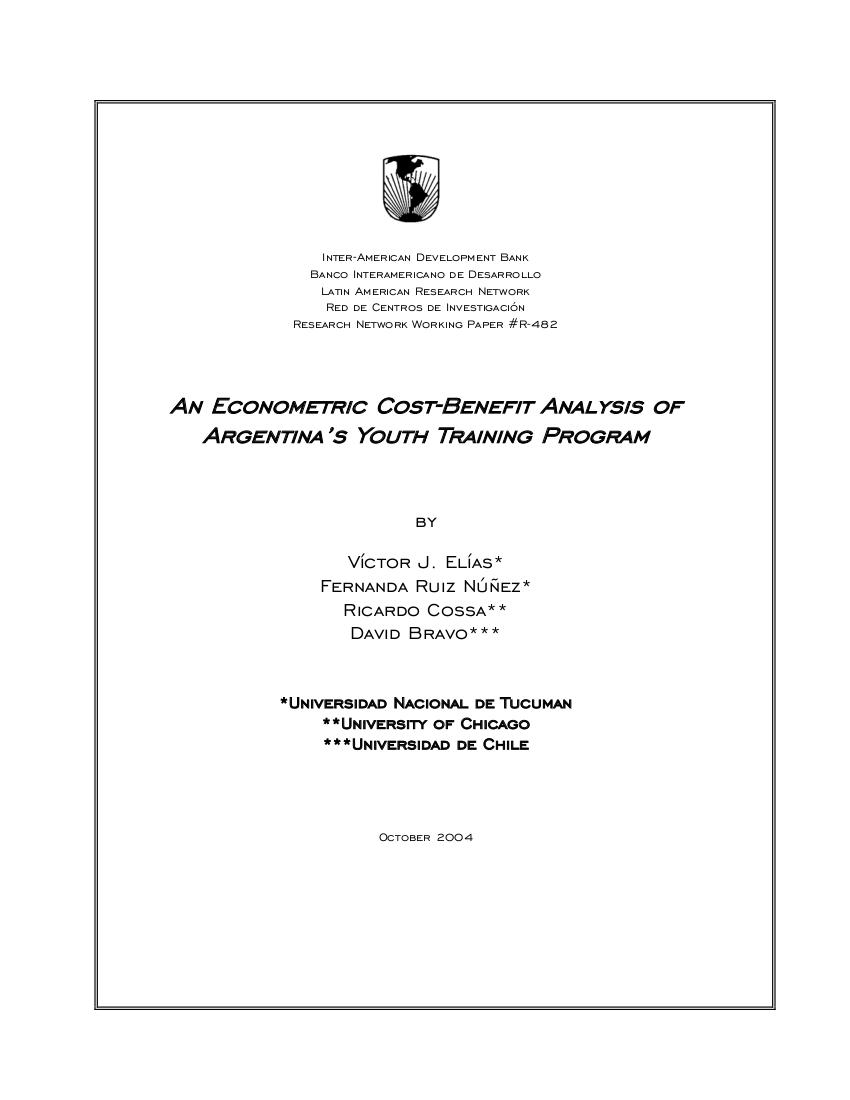An Econometric Cost-Benefit Analysis of Argentina’s Youth Training Program
Date
Oct 2004
The Youth Training Program (YTP) was an important component of Argentina's active labor policy of the 1990s. The program offered courses of three months' duration, divided equally between lectures and practical experience, and targeted young people, most of whom were not employed and had a low level of education. The program was offered by different institutions chosen through a bidding process and included courses in the fields of agriculture, manufacturing, construction, and services. This paper conducts an econometric cost-benefit analysis of the fifth round of the YTP. Benefits (wage increases, increase in likelihood of employment, increase in earnings) are estimated using non-matching (Before and After, Cross Section, and Difference in Difference) and matching techniques based on propensity score estimate (Nearest Neighbor, Kernel, Local Linear Regression) in order to avoid selection bias. Estimates of the ATE and TT effects are also provided. A sample consisting of 1,670 beneficiaries and a similarly-sized comparison group provided the information necessary to apply the methodology. Benefit estimates are made for the aggregate, by gender, and for both youth and adults. Regional differences are also provided. The cost includes direct and indirect components and the alternative cost of beneficiaries reducing their contributions to output during the program. Estimates of the rate of return are provided based on the previous benefit and cost estimation. In general, the results support an estimate of a 10 percent of return. This looks reasonable if it is compared with the very low rate of return of education estimated separately for the participant's group. Finally, the management of the program is evaluated.




